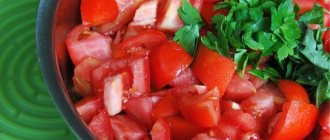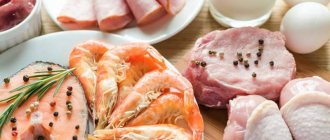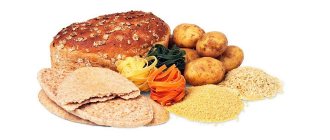The question of whether milk makes you fat comes to mind for those who want to get rid of excess weight and maintain slimness. When evaluating any product, it is necessary to compare its beneficial properties and possible negative effects on the body. A lot has been said about the benefits of milk, however, the product is not considered uniquely useful. A number of experts are of the opinion that dairy products are inappropriate for consumption on a weight loss diet. In this material we will analyze the properties of milk and its effect on body weight. You will find out whether it is possible to consume dairy products during the period of losing excess weight.
Dairy products are very popular, they are easily digestible and provide the body with many nutrients. Even though it contains fat, a glass of milk contains fewer calories than the same serving of juice. Let's start studying the issue with useful properties.
Nutritional value of different types of milk
Cow's milk has several different levels of fat content, including skim, 1%, 2%, and whole.
All of these options contain approximately 12-15 grams of carbohydrates and 8 grams of protein in 1 cup (240 ml). However, the amount of fat and calories varies depending on the species (,).
Here is a list of different types of milk and their fat and calorie content per 1 glass (240 ml) ():
| View | Calorie content | Fat |
| Whole | 150 kcal | 8 grams |
| 2% | 125 kcal | 5 grams |
| 1% | 100 kcal | 2.5 grams |
| Low fat | 80 kcal | 0–1 grams |
Milk is naturally rich in calcium and is often fortified with vitamin D, two nutrients that are vital for bone development and health. What's more, it contains vitamin A, which promotes optimal eye health and supports your immune system (, ,).
There are two main types of protein in milk – whey and casein. Some research suggests that these proteins may help lower blood pressure and cholesterol levels, two risk factors for heart disease ().
Additionally, research shows that drinking milk after a workout can help build muscle mass and improve body composition (, ).
Keep in mind that milk that doesn't come from cows—including sheep and goat milk, as well as plant-based milks made from nuts and seeds—has different nutrient profiles and may not have the same health benefits.
Summary:
Milk contains calories, carbohydrates, proteins, fats, vitamins and minerals. The amount of fat and number of calories in each type varies.
Main benefit of the product
Thanks to antibiotic substances, the drink has bactericidal properties. In addition, it strengthens the immune system and acts as an effective barrier to the spread of infections in the body. It is used in the complex treatment of lung diseases and bronchitis. Milk contains a wide variety of vitamins, microelements, proteins, enzymes, and lactic acids.
Microelements are responsible for the normal development of all cells in the body. How effective this work is can be judged by the external condition of teeth, nails, skin, and hair. Saturated acids are involved in the process of regulating the functioning of the nervous system. Milk has a calming effect on the body, so it is useful to drink it before bed. This prevents insomnia and prevents depression.
Milk contains lactose, which is responsible for the normal functioning of the intestines. It prevents decay processes from developing, prevents the spread of harmful microflora, and helps better absorption of calcium. Since the drink contains the amino acid lysozyme, which has healing properties, it is useful for diseases of the gastrointestinal tract. It is recommended to use it for increased stomach acidity and chronic heartburn.
Thanks to calcium, potassium and vitamin B12, the product has a beneficial effect on the activity of the cardiovascular system and is involved in regulating the metabolic process. Milk is used in the treatment of colds, flu and sore throats. The drink warms the throat well, as a result of which the cough becomes softer and phlegm clears faster. To do this, it is recommended to add honey and butter to a glass of warm milk. Due to its high fat and protein content, it perfectly restores strength after heavy physical and mental stress. Herbs brewed and infused in milk are easier to digest and act more effectively.
It’s hard to imagine cooking without this unique product, even for those who don’t know if milk makes you fat. The preparation of baked goods, sauces, marinades, coffee drinks and, of course, cereals cannot be done without it. In addition, milk is actively used in cosmetology. Due to its ability to nourish the skin, eliminate inflammation and irritation, it is included in face masks. Milk is often used as a dietary product. The drink is often included in the diet of people who are afraid of gaining weight and carefully count calories before each meal. There is even a milk diet.
However, some people's bodies cannot tolerate milk. This is due to the fact that it does not produce an enzyme that helps digest milk. In this case, you should not drink the drink. The same as with bloating and loose stools. Milk is contraindicated for intestinal diseases, especially acute ones, as well as for exacerbation of chronic diseases. You should not drink the drink in preparation for surgery or immediately after it.
If a person has liver problems, one should think about whether to use the product or not. Sometimes the liver reacts normally to milk, sometimes it doesn’t. A negative reaction of the organ can be seen by bloating. Then it is better to refrain from drinking the drink. There are cases when a person has an allergic reaction to milk. It is not recommended to drink it. The use of the product is contraindicated in the presence of kidney stones. In this case, it is not even the milk itself that is harmful, but its combination with other liquids, for example, tea.
Despite the widespread belief about the benefits of tea with milk, such a drink will not benefit the body. The fact is that tea microelements, combining with milk calcium, activate the process of formation of kidney stones and clogging of blood vessels with harmful deposits. It is permissible to drink tea with milk in exceptional cases, for example, with high blood pressure. But then you need to drink it no more than once a week.
Milk and weight gain
Since milk is a good source of calories, protein and other nutrients, it offers a balanced approach to weight gain.
In particular, it may be useful for athletes and bodybuilders who may need or want to build muscle mass, as well as for those who are underweight and want to gain weight.
Weight gain is the result of consuming more calories than you burn. If you want to gain weight, it's important to get extra calories from nutrient-dense foods instead of high-calorie, low-nutrient foods like sweets and snacks.
Drinking milk—especially high-fat milk—can provide the body with extra calories in addition to protein and other beneficial nutrients.
All types of cow's milk, except skim, contain saturated fat.
While some research suggests that excess consumption of saturated fat may be harmful to heart health, other research suggests that dairy fat may actually lower cholesterol levels and the risk of heart disease ().
Although high-fat dairy products are high in cholesterol, consuming cholesterol-rich foods does not significantly increase blood cholesterol levels in most people ().
However, it is important to note that for some people—those who are hyperresponsive to cholesterol—eating cholesterol-rich foods may cause their cholesterol levels to rise more.
According to research, this increase may not negatively affect heart health, but those who have a genetic predisposition to high cholesterol levels may want to consume low-fat milk, such as 1% or 2% ().
Overall, milk is versatile and can be added to many recipes or consumed on its own, making it easy to consume more calories without making significant dietary changes.
Scientists tested whether milk makes you fat in an experiment
Tests of this effect of milk were carried out by scientists on a group that consisted of more than thirty volunteers, both male and female. All subjects had problems with excess weight. The study took place in two stages. At the first stage, each subject was given approximately half a liter of milk (skimmed) for breakfast. At the second stage, fruit juice was given instead of milk (how beet juice is beneficial). It is worth noting that the calorie content of both milk and fruit juice was the same (about 250 kilocalories). Afterwards, during lunch, the subjects were allowed to eat such an amount of food that would be enough for them to feel completely full. As a result of the experiment, it turned out that after drinking milk, the subjects felt much more full than after drinking fruit juice.
May Help You Build Muscle Mass
Milk can also help with weight gain by helping you build muscle mass.
In particular, the whey and casein proteins in cow's milk may promote muscle rather than fat mass.
One 12-week study of 10 young women found that drinking 1 liter of skim milk after resistance exercise resulted in significant gains in muscle mass and fat loss compared to drinking a carbohydrate drink with the same number of calories ().
Another study of 8 men found that drinking approximately 2 cups (500 ml) of skim milk after resistance exercise resulted in significantly higher rates of muscle gain compared to consuming a nutritionally similar soy drink ().
Other studies have linked consumption of milk or combined casein and whey supplements after resistance training with increased muscle mass (, ).
For these reasons, milk may be a smart choice for those looking to build muscle and gain weight.
Summary:
Milk is a rich source of calories and protein. Research shows that consuming it after a workout can help you build muscle and maintain a healthy weight.
Edema
Cow's milk contains a complex protein - casein . This protein slows down the digestion of food, and if jock athletes can afford to drink milk or eat cottage cheese at night in order to saturate their muscles with amino acids even in their sleep, then girls who are watching their waistline should give up this drink before going to bed.
Otherwise, in the morning you may experience swelling in the eye area or lower abdomen. If you can't live without a cup of hot cocoa by the fireplace, try adding vegetable matter to your cocoa instead of cow's cocoa. For example, coconut, oatmeal, almond or rice. Some you can prepare yourself at home, and many are sold in stores. Just read the ingredients to make sure there is no sugar in it.
May not be the right choice for everyone
Many people are intolerant to lactose, the natural sugar in milk. Symptoms of lactose intolerance include increased gas, bloating, or stomach discomfort after consuming dairy products ().
Some people may also be allergic to proteins in milk, such as casein and whey, which can cause skin reactions, stomach discomfort, and even anaphylactic shock in some cases ().
If you are lactose intolerant or have a milk protein allergy, milk is not a good food option for weight gain.
However, you have many other options for safely gaining weight, especially lean protein sources that are rich in calories and nutrients.
Some healthy alternatives include eggs, avocados, fatty fish, plant-based protein powder, and nuts and nut butters.
Summary:
People with lactose intolerance should not drink milk to gain weight. Non-dairy foods that can help with weight gain include eggs, nuts, avocados and plant-based protein.
How to Include Milk in Your Diet to Gain Weight
If you're interested in increasing your milk intake to gain weight, there are several ways to add it to your diet.
For example, you can include it in other nutrient-dense dishes such as eggs, oatmeal, smoothies, soups, or stews. You can also mix it with coffee or tea.
Drinking a glass of milk with meals is another easy way to increase your calorie and protein intake for weight gain.
Even though all types of milk are rich in protein and beneficial nutrients, remember that the higher the fat level, the more calories.
So if your goal is weight gain, whole milk may be your best choice.
Summary:
To increase your milk intake, drink a glass with your meal or try mixing it with other foods, including eggs, oatmeal and smoothies.
Summarize
- Milk is an excellent source of calories, protein, and healthy nutrients that can help you safely gain weight and build muscle.
- To increase your intake, try drinking it with meals or adding it to smoothies, soups, eggs or cereals.
- However, people with lactose intolerance or milk allergies should avoid consuming it.
Tags: Milk
- Related Posts
- Yogurt: benefits and harm to the body
- Chicken eggs: beneficial properties and contraindications
- Why is there blood in an egg and can it be eaten?
« Previous entry









